
So you’re about to spend money on recordings which means you’ll be studio shopping.
Every day artists come to Nashville and go studio shopping to put together the team that will render their dream. So many artists work with the amazing musicians, some of them in  unbelievable studio facilities, but they still end up feeling depressed with incredibly lackluster projects after they spend all that money.
unbelievable studio facilities, but they still end up feeling depressed with incredibly lackluster projects after they spend all that money.
The first pro tip I would give you is to focus more on the team than the facility. The producer and the engineer are far more important to your outcome than which studio you’ll be in.
Why do poor recordings happen so often even with the best musicians and the best studios?
This report will help protect you and the monetary investment that you are about to make and help you with the scary task of studio shopping. The idea is to prevent you from experiencing the studio “Car Wash†syndrome (not just in Nashville) where everyone is artistically treated and approached the same way. If you’ve been there (and I have as an artist), the studio “car wash” is a crappy, terrifying experience that delivers dull, disappointing recordings that lack any artistic “sparkâ€.
I want to give you some tools to help you pick the appropriate personnel and facility for what you are trying to accomplish.
1. Have a clear idea of what your goal is for the recordings
Is it a song demo intended to pitch to artists, publishers, producers, etc., for the purposes of getting a cut?
Are you thinking of recording a demo to shop to record labels?
Is the recording for posterity? Maybe you just want the recording for you which means it doesn’t need to be competitive. 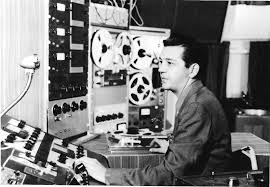
Is it an artist track with the intent that you’ll sell the recording to consumers?
Are you a touring artist already or are you a new artist?
This will play into how many songs you need to do, etc.
Touring artists are more likely to make a full 10 song CD pay off as they can sell them from the stage and make their money back. Their crowd lies in the regular audiences they play in front of.
New artists need not pay for a whole record, rather create an EP and use the remaining budget for mission-critical marketing.
Get clarity on the overall outcome of
Demos are demos, but what kind are you making?
2. Understand the difference between a demo and an artist track and most importantly WHY they are so different.
A SONG Demo is a demonstration of the SONG.
The focus is on the lyric, melody, and vibe of the song. You’re selling the song, NOT the recording itself. Your goal here would be to get an artist cut.
Demos that are created to showcase your talent as an artist to a potential record label are irrelevant today.
Record labels might love your music but they don’t develop talent. Therefore, they can’t do anything about your amazing music unless you have an audience to go with it.
No record label is going to sign you based on your talent as articulated by your demo anymore. Today you MUST have an audience and create cash flow first before a label will sign you. (Yes there are exceptions to this rule as always but that would be like you building your life around income from winning the lottery…NOT likely and your deal would SUCK).
Your deal will become a curse if you’re a super-talented artist with a record deal and no audience.
Demos or home studio recordings where you fiddle around artistically crafting your track before spending money in a proper recording are BRILLIANT. Time well spent!
If you’re recording an artist track, the focus is on the Artist, the arrangements, the performances, and the song choices.
The intent of an artist track is to sell the actual recording so it has to be HOT.
Listen to Jamie Johnson’s “In Colorâ€. This track is all about him, the song, and the vocal performance.
Listen to any song from Van Halen I or Van Halen II. Those records are all about the guitar. Producer Ted Templeman found creative clever ways to ensure that the recordings and the mixes focused on the guitar sonically as well as with the arrangements. (For instance, if you listen you’ll notice the guitar is coming out of the left speaker by itself. Drums and bass are in the right speaker.) This was unusual creative production to feature the band’s musical strength, Eddie Van Halen.
Artist tracks typically involve much more craftsmanship (i.e. song selection, preproduction, arrangements, instrumentation, BGV’s, etc.) than a demo, especially when it comes to the vocal. Thus, they’re going to be more expensive.
If you’re getting an artist track for the price of a decent demo, you’re not getting a deal, you’re getting less time.
Song selection is important. A good producer is going to tell you what songs you should record, when to keep writing (especially for the artist-defining first single), and what songs just aren’t strong enough. Treat this process like Billy Joel did when he said, “I love all my songs equally as if they were all my children. Some grow up to be doctors and lawyers and some grow up to be delinquents.â€
You have to know and accept the difference between an “A†song and a “B†or “C†song. If you get defensive about it, your producer needs to have the skill-set necessary to getting in your head and convincing you why some tunes just aren’t going to stand up to others.
An artist track has to BLOW people away!
3. Understand the genre you are working in and what has to happen to reproduce what you hear in your head
The country and rock genres are typically recorded with a live band (although most “new†country and rock are also 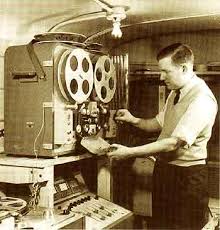 programmed these days)
programmed these days)
If you use a studio where all the musicians are ONLINE then you may end up with elevator music so be careful!
These online-choose-your-amazing-player type studios are typically the most expensive recordings with the lowest return.
If you’re recording only for posterity, for your pleasure, this is a good choice, albeit expensive.
If the studio you are considering is really one guy playing all the instruments, engineering the tracks, producing the song, and mixing as well, then your recording will most likely suffer and be flat energy-wise. The track will probably end up sounding like elevator music.
These are typically least expensive recordings (you can find guys in Nashville that will do this for $400/song including a pro singer!)
Again, if your recording doesn’t have to compete with any professional recordings (because it’s just for you) then this is a great inexpensive way to get your song recorded.
However, professionals can identify these low-budget performances/mixes/recordings instantly so these kinds of super cheap recordings are good for posterity but not for any professional applications. They just won’t compete.
Most Pop and a lot of R & B music is programmed with some overdubs here and there.
Here is where a live band is NOT what you want!! You want a killer programmer to nail the parts and you may occasionally use a musician like a guitar player or some other instrument to overdub some “color tracksâ€.
4. Understand the difference between a producer and an engineer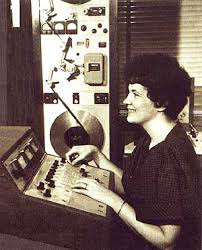
Producing, arranging, engineering, and mixing are all very specific art forms in and of themselves. There are people in Nashville that make GREAT livings just doing one of these art forms. Sometimes you can get someone who is extremely adept at all of these.
But, don’t expect your guy to have mastered all these.
Find out where he excels and where you can get better results going somewhere else (i.e. for the mix). After all, it’s your track and it has to be good.
FYI, typically I’m not as picky about the mix on a song demo. However, I’m very picky about the engineer, producer, and mix on an artist track.
Sometimes Producers are capable engineers, sometimes they aren’t.
An engineer’s job is to tend to the sessions keeping the creative flow going ensuring the performances are appropriate, sonically superior, and relevant.
Different engineers have different “earsâ€. If you’re fishing from a quality “pond†all your choices will be capable engineers but will deliver far different results.
For instance, if you listen to 30 seconds of Queensryche’s Operation: Mindcrime you’ll quickly ascertain that Jimbo Barton has very “clean†ears. While this record is a masterpiece in the rock world, and Jimbo engineered the fire out of this record, he would have been a poor choice to engineer Guns & Roses Appetite for Destruction record.
Make sure you put some thought into how you want your record to sound and choose your engineer appropriately.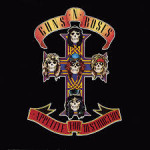
An engineer has to have a detail-oriented personality to keep good “books†meaning he/she will painstakingly organize all your tracks to make post-production as efficient as possible whether it’s to aid them or another engineer (which is often the case). The old “there’s a method to my madness and I can find what I need when I need it in this pile of crap†methodology is lazy, unprofessional, and unacceptable. You’ll pay dearly for that in setup charges if you ever need to go anywhere else.
A Producer will be at the helm in charge of sailing your artistic ship and articulating your vision.
The producer is a creative that infuses energy into the project.
A producer has to “hear†and “feel†the artists in terms of artistic lane definition, song choices, sonic goals, arrangements, communication with artists and vocalists to “push†for stellar performances.
A producer is also a project manager (meaning you’re getting what you want on time and under budget).
A producer will have relationships with musicians (if you need them) and be capable of leading them. Often in Nashville, if you don’t have a producer, the musicians will lead a rookie artist without a producer. That  makes for a “car wash†situation without fail and it costs the same. Most musicians are honest, great people but if they’re not getting paid to produce they’re getting paid to record and that’s what they’re going to focus on; recording as efficiently as possible.
makes for a “car wash†situation without fail and it costs the same. Most musicians are honest, great people but if they’re not getting paid to produce they’re getting paid to record and that’s what they’re going to focus on; recording as efficiently as possible.
With no captain on the ship, the project will most like run aground.
REMEMBER: The art of “making records†is VASTLY different than knowing how to press the record button with capable musicians. There is a difference and you and/or your producer better know it.
A producer will create psychological bonds with you and your band to develop trust and elevate their understanding of the recording process and how to excel at their performance.
A producer is usually the best musician in the room.
5. Find a reputable production company or studio with an engineer and a producer who understand your vision and needs
You’ll need plenty of pre-production
Making a record is similar to painting a room. 90% preparation and 10% actual painting.
If you’re recording an artist project are they pushing you with your lyric/songs quality or just agreeing with everything you want to complete the project and get paid?
Listen to the first 2 Bon Jovi records and then listen to their 3rd release Slippery When Wet. The third release they really focused on songs and it shows. Different producer, different outcome.
6. What musicians will the studio be using?
Listen to past works.
Casting is crucial.
I usually keep around 5 VERY amazing acoustic players in my stable. They all have different nuances that are more appropriate for certain tracks (i.e. delicate fingers, heavy-handed Stonesy vibe, very clean fingerpicking, etc.)
Does your team have access to the kind of musicians you need?
It’s possible that you could utilize a premiere studio for certain tracks and OD the guitars elsewhere for instance with someone more appropriate for the job (and less expensive).
7. Move forward with your songs when you are ready.
Every journey must begin with the first step.
Martin Luther King said, “Faith is taking the first step when you can’t see the whole staircase“. You will never see the whole staircase.
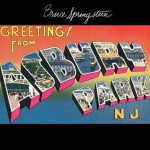
One demo or one artist album or EP is merely a “snapshot†of that moment in time and your artistry so don’t let “perfection” get in the way of forward progress.
Manford Mann was responsible for Bruce Springsteen’s first 2 #1 hit singles with their rendition of “Blinded by the Light†and “Spirits in the Nightâ€. FYI, when Bruce first handed in his debut recording Greetings from Asbury Park, N.J. into Columbia records, neither of these 2 songs were recorded or written! Clive Davis told Springsteen there was nothing he could put on the radio so he should go back and write some more. Bruce did that. Maybe reluctantly but he trusted Clive (or more than likely didn’t have a choice if he wanted his record to come out) and wrote his first two #1’s (albeit by another artist). Manfred Mann told an interviewer that he rather enjoyed restructuring and “playing†with Springsteen’s early songs. However, when asked why he didn’t continue to revamp Bruce’s songs in lieu of the successes of the first two, Mann said that Springsteen had gotten so good at songwriting he didn’t feel he could improve them.
My point here is that while Springsteen’s first and second releases were critically acclaimed (understood by people with more sophisticated artistic palates who saw the raw brilliance and identified the unusual songwriting approach) they didn’t sell well at all. It wasn’t until Bruce’s 3rd release Born to Run that he refined his craft to the point where the masses began to respond.
It’s also important to note that he was willing to refine his craft and did so initially at the behest of the record label head. He could’ve simply bowed up on Clive Davis and told him his art was just fine the way it is and his art is “subjective†and all the crap you hear from non-professionals.
Instead, he chose to learn and that led him down a path to being considered one of the greatest songwriters of the 20th century.
I hope this helps you prepare for a KILLER recording!
Â
